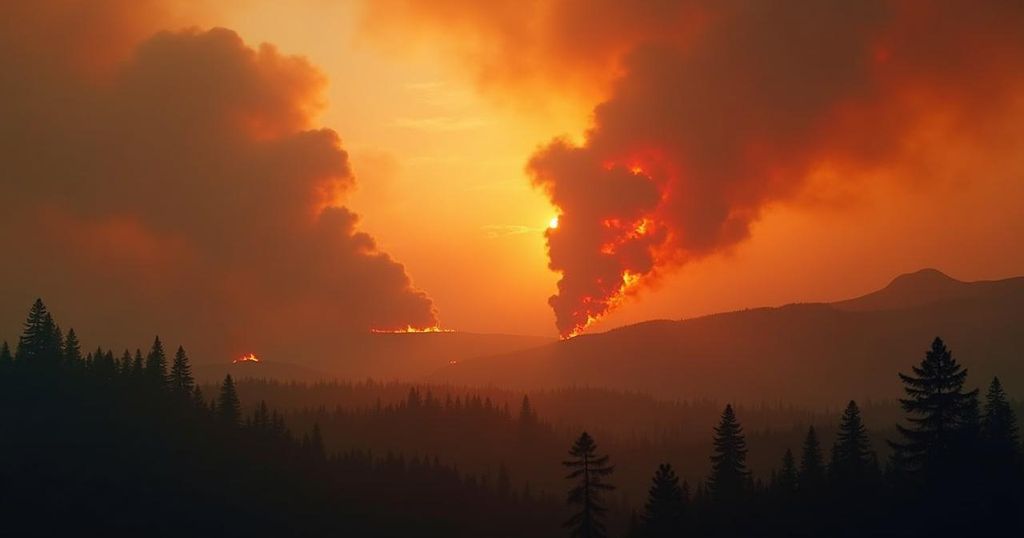The article outlines the grave situation resulting from widespread wildfires in South America, notably within the Amazon. It references significant health impacts in affected areas due to smoke, emphasizes the anthropogenic causes tied to agriculture, and highlights the alarming scale of destruction observed across multiple nations, culminating in a call for urgent collective action to address this ecological crisis.
The recent wave of devastating wildfires throughout South America, particularly in the Amazon region, has raised alarm among local health officials and environmental advocates alike. In Rondônia, Brazil, smoke from rampant fires has permeated the atmosphere, blocking visibility and rendering even basic activities like landing airplanes problematic. Dr. Lilian Samara de Melo Lima has reported a surge in chronic respiratory issues, migraines, and eye complaints at her clinic, highlighting the dire health consequences resulting from this environmental disaster. Forests are ablaze across the continent, fueled by a combination of drought conditions—exacerbated by the El Niño phenomenon—and human activities such as land clearing for agriculture, primarily driven by cattle ranchers and soy farmers. Erika Berenguer, a scientist from Oxford University, indicated that satellite data has identified an unprecedented number of fire hotspots across neighboring countries, underscoring the widespread nature of this crisis. In Paraguay, the impact has been similarly catastrophic, with fires ravaging the Chaco ecosystem and affecting local economies. Reports reveal that over 180,000 hectares of forest were consumed by flames since early September, severely impacting the Ayoreo nomadic community that relies on these lands for sustenance. The situation in Peru is equally dire, where a forest fire has led to numerous fatalities and prompted states of emergency in several regions due to relentless flames that have decimated vast areas of wilderness. While Ecuador’s capital, Quito, faces its own peril, paramedic Christian Rivera has noted an alarming frequency of new fires emerging even as responses are made to extinguish existing ones. In Bolivia, devastating wildfires have led President Luis Arce to declare a national disaster, with an astonishing 4.6 million hectares affected—a figure larger than Switzerland itself. Health Secretary Marilene Penati of Porto Velho lamented the collective negligence regarding the environmental crisis, poignantly stating, “The Earth is sick … the Earth is crying out for help.” She echoes a sentiment articulated by Pope Francis regarding the urgent need for humanity to alter its destructive behaviors in order to safeguard the planet.
This article discusses the alarming rise in wildfires across South America, particularly in the Amazon rainforest, ignited largely by human activities and exacerbated by climatic conditions such as El Niño. It highlights the health repercussions for local populations, the impact on Indigenous communities, and the extensive environmental damage observed in countries like Brazil, Paraguay, Peru, and Bolivia. The struggles faced by local health officials are illustrated, alongside reports from scientists who warn of this ecological catastrophe. The interconnectedness of agriculture, illegal land clearing, climatic changes, and health consequences for communities are critical themes explored in this narrative.
South America’s wildfires represent a multifaceted crisis intertwining environmental degradation, public health risks, and socio-economic challenges. With smoke blanketing massive areas and local communities reeling from the health effects caused by the toxic environment, the collective response from nations and individuals alike is urgent. The consequences of neglecting such climatic issues could be catastrophic, necessitating a reevaluation of human activities that manipulate natural landscapes. As highlighted by health officials and scientists, the time has come for humanity to respond decisively before the damage becomes irreversible.
Original Source: www.theguardian.com






